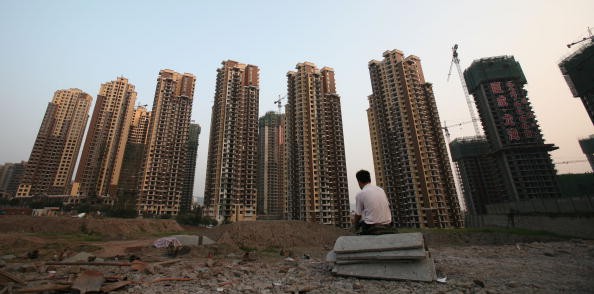China is set to lower its 2017 economic growth target from around 6.5 percent from last year's 6.5-7 percent, reinforcing industry speculations that Beijing is shifting from supporting growth to pushing reforms to contain debt and housing risks.
The proposed target was endorsed by top officials at the closed-door Central Economic Work Conference in mid-December, Reuters reported on Tuesday, citing four sources with knowledge of the meeting outcome.
"The target will be around 6.5 percent, which indicates that slightly slower growth is acceptable," one of the sources, a policy adviser, was quoted in the report.
The State Council Information Office, the public relations arm of the Chinese government, declined to comment on the report.
China's economy grew at an estimated 6.7 percent last year--roughly in the middle of the government's target range--but faces increasing uncertainties in 2017, the head of China's state planning agency said earlier this year.
Policy stimulus measures, including a record increase in lending from mostly state-owned banks and bigger government spending, have stoked concerns among senior officials about high debt levels and a critical housing market that could threaten the country's financial stability of not addressed, the sources said.
Under China central bank's recently announced "prudent and neutral" strategy, market interest rates are expected to rise in order to stabilize credit conditions which, in turn, should bolster the weaking yuan, the sources added.
"They've put more emphasis on controlling risks, and monetary policy could be a bit tighter," a second policy source said, noting that the change is a form of 'fine-tuning' in anticipation of a key party meeting later autumn this year at which there will be a change in the top leadership.
"They are keen to keep economic growth stable before the 19th party congress," the source said.
Beijing has pledged to curb the growth of asset bubbles in 2017 and place greater importance on the prevention of financial risk, while at the same time keeping the economy on a path of a stable growth.
China's banks released a record 12.56 trillion yuan ($1.82 trillion) in loans in 2016 as the government pushed for more credit-fueled stimulus to meet its economic growth target, despite concerns about the risks of skyrocketing debt.
Reform vs. Growth
China's economy has to growth by at least 6.5 percent between 2016 and 2020 to meet its goals of doubling GDP and per capita income by 2020 from 2010 levels.
Beijing has also pledged "decisive" results by 2020 on a wide range of reforms to allow market forces to play a bigger role in pivoting the economy away from inefficient state-owned enterprises, which in the short term could lead to slower output.
Last year's expected growth of 6.7 percent, although the slowest in 26 years, will have given the government added room to maneuver, but Beijing will not accept a sharp slowdown ahead of the leadership transition, the policy sources said.
The 2017 growth target will be announced at the annual meeting of the National People's Congress in early March.
The sources said the government is set to maintain a 3 percent inflation target this year, suggesting policymakers are less worried about a sharp surge in consumer prices despite rising factory-gate costs in recent months.
December consumer prices jumped 2.1 percent from a year earlier, easing from a 2.3 percent rise in November, while producer prices jumper 5.5 percent in December year-on-year, the most since Sept. 2011.
China's producer price surge, fueled by rising commodity prices, has yet to filter down into consumer prices due to weak demand, so the country's central bank is not yet under pressure to tighten policy.
Even if inflation hits 3 percent in some months of 2017, the central bank would have to assess whether the economy is stable enough to safely raise interest rates, which may help the struggling yuan, the policy sources said.
"If you don't want the exchange rate to depreciate, you should tighten credit, but there could be problems in debt prices and market liquidity--how to balance them is a very difficult thing," one of the sources added.




























